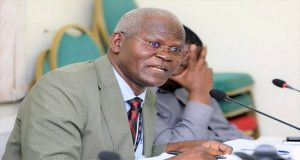
By Jude Opolot Akol [B.A. Economics]
judeopolot256@gmail.com
Ahead of the preparations for the FY 2023/24 budget, BFP estimates indicate an increase in the budget from 52.7 Trillion to 58.3 Trillion. It is estimated that domestic revenue shall fund the budget due to the dwindling donor funds with continuous withdraws from supporting the budget as it has been.
With these come new challenges for Uganda on how to navigate the new development after receiving over US $190 Billion since 1960. Of these, most of the funding goes into health, education and infrastructure, which are critical sectors in the economy. The withdrawals thus present tough times for Uganda.
The concern resonates more on the impact that donor cuts will have on the health sector as one of worst hit sectors where foreign funding to the sector has been contributing a lions share. Ministry of Finance predicts a fall in donor funding from 27 Trillion in 2023/24 to 28.9 Billion in 2024/25. This comes at a time when 50% of the deaths among the population are caused by communicable diseases like Malaria and HIV/AIDs whose interventions have for long been funded by donors. This poses a critical challenge to both government and the people. What then ought to be done?
Government and Parliament should consider budget budget adjustments and adopt expenditure prioritization approach. By reducing non priority spending such as donations, drinks etc, we could save up to 514 Billion of which we spend 331 Bn on human capital development under health sector.
Secondly, government should also draft strategies to domestic revenue mobilization. Our tax to GDP ratio of 14% signals an under capacity calling for more strategies by government to get more people into the tax net. This should look at growing tax compliance, checking on the loop holes in the tax system to reduce tax evasion and where possible, broaden the tax base without crippling the business sector. This would increase domestic revenue contribution and performance. We are below the continents average of 15.6%.
With new developments, Uganda could also think of deliberate engagements with other development partners in a bid to diversify funding and leverage on international support. Building such strategic partnerships would help us avert the plague coming ahead as we ostensibly adjust.
In conclusion, it is certain that there is much optimism for the country to over come funding cuts with more commitment from government. What is needed is more intentionally in addressing this wide spread skepticism on the economy’s ability to cover the rising financing gaps.








